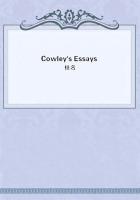The truth was soon plain to all. No buoys, no beacons, no lights, no coal, no station; the castaways pulled through a lagoon and landed on an isle, where was no mark of man but wreckwood, and no sound but of the sea. For the seafowl that harboured and lived there at the epoch of my visit were then scattered into the uttermost parts of the ocean, and had left no traces of their sojourn besides dropped feathers and addled eggs. It was to this they had been sent, for this they had stooped all night over the dripping oars, hourly moving further from relief. The boat, for as small as it was, was yet eloquent of the hands of men, a thing alone indeed upon the sea but yet in itself all human; and the isle, for which they had exchanged it, was ingloriously savage, a place of distress, solitude, and hunger unrelieved. There was a strong glare and shadow of the evening over all; in which they sat or lay, not speaking, careless even to eat, men swindled out of life and riches by a lying book. In the great good nature of the whole party, no word of reproach had been addressed to Hadden, the author of these disasters. But the new blow was less magnanimously borne, and many angry glances rested on the captain.
Yet it was himself who roused them from their lethargy.
Grudgingly they obeyed, drew the boat beyond tidemark, and followed him to the top of the miserable islet, whence a view was commanded of the whole wheel of the horizon, then part darkened under the coming night, part dyed with the hues of the sunset and populous with the sunset clouds. Here the camp was pitched and a tent run up with the oars, sails, and mast.
And here Amalu, at no man's bidding, from the mere instinct of habitual service, built a fire and cooked a meal. Night was come, and the stars and the silver sickle of new moon beamed overhead, before the meal was ready. The cold sea shone about them, and the fire glowed in their faces, as they ate. Tommy had opened his case, and the brown sherry went the round; but it was long before they came to conversation.
"Well, is it to be Kauai after all?" asked Mac suddenly.
"This is bad enough for me," said Tommy. "Let's stick it out where we are."
"Well, I can tell ye one thing," said Mac, "if ye care to hear it.
When I was in the China mail, we once made this island. It's in the course from Honolulu."
"Deuce it is!" cried Carthew. "That settles it, then. Let's stay.
We must keep good fires going; and there's plenty wreck."
"Lashings of wreck!" said the Irishman. "There's nothing here but wreck and coffin boards."
"But we'll have to make a proper blyze," objected Hemstead.
"You can't see a fire like this, not any wye awye, I mean."
"Can't you?" said Carthew. "Look round."
They did, and saw the hollow of the night, the bare, bright face of the sea, and the stars regarding them; and the voices died in their bosoms at the spectacle. In that huge isolation, it seemed they must be visible from China on the one hand and California on the other.
"My God, it's dreary!" whispered Hemstead.
"Dreary?" cried Mac, and fell suddenly silent.
"It's better than a boat, anyway," said Hadden. "I've had my bellyful of boat."
"What kills me is that specie!" the captain broke out. "Think of all that riches,--four thousand in gold, bad silver, and short bills--all found money, too!--and no more use than that much dung!"
"I'll tell you one thing," said Tommy. "I don't like it being in the boat--I don't care to have it so far away."
"Why, who's to take it?" cried Mac, with a guffaw of evil laughter.
But this was not at all the feeling of the partners, who rose, clambered down the isle, brought back the inestimable treasure-chest slung upon two oars, and set it conspicuous in the shining of the fire.
"There's my beauty!" cried Wicks, viewing it with a cocked head. "That's better than a bonfire. What! we have a chest here, and bills for close upon two thousand pounds; there's no show to that,--it would go in your vest-pocket,--but the rest! upwards of forty pounds avoirdupois of coined gold, and close on two hundredweight of Chile silver! What! ain't that good enough to fetch a fleet? Do you mean to say that won't affect a ship's compass? Do you mean to tell me that the lookout won't turn to and SMELL it?" he cried.
Mac, who had no part nor lot in the bills, the forty pounds of gold, or the two hundredweight of silver, heard this with impatience, and fell into a bitter, choking laughter. "You'll see!" he said harshly. "You'll be glad to feed them bills into the fire before you're through with ut!" And he turned, passed by himself out of the ring of the firelight, and stood gazing seaward.
His speech and his departure extinguished instantly those sparks of better humour kindled by the dinner and the chest.
The group fell again to an ill-favoured silence, and Hemstead began to touch the banjo, as was his habit of an evening. His repertory was small: the chords of _Home, Sweet Home_ fell under his fingers; and when he had played the symphony, he instinctively raised up his voice. "Be it never so 'umble, there's no plyce like 'ome," he sang. The last word was still upon his lips, when the instrument was snatched from him and dashed into the fire; and he turned with a cry to look into the furious countenance of Mac.
"I'll be damned if I stand this!" cried the captain, leaping up belligerent.
"I told ye I was a voilent man," said Mac, with a movement of deprecation very surprising in one of his character. "Why don't he give me a chance then? Haven't we enough to bear the way we are?" And to the wonder and dismay of all, the man choked upon a sob. "It's ashamed of meself I am," he said presently, his Irish accent twenty-fold increased. "I ask all your pardons for me voilence; and especially the little man's, who is a harmless crayture, and here's me hand to'm, if he'll condescind to take me by 't."















